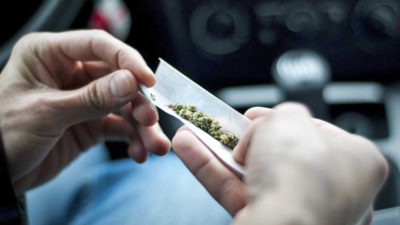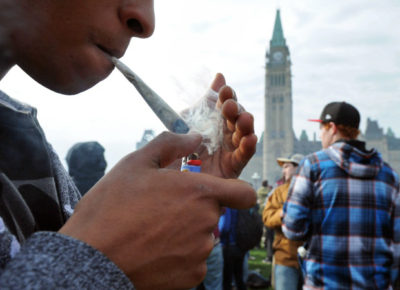A concern of many around next year’s impending legalization of marihuana is the potential for a spike in impaired driving, in which the intoxicant of choice is weed. Possession of marihuana – up to 18 grams – will become legal on Canada Day 2018.

With so much weed in so many pockets, no one really knows yet how it’ll affect our roadways, but one can safely assume that the rate of impaired driving will increase, and with it the rate of road carnage.
These unintended consequences of legalization now drive proposed legislation meant to keep our roadways safe; exactly how successful the new laws will be in the face of charter-based challenges is open for debate. Here’s a summary of the proposed laws:
The levels would be set by regulation. For THC (the main psychoactive compound in cannabis), the proposed levels would be:
– 2 nanograms (ng) but less than 5 ng of THC: Having at least 2 ng but less than 5 ng of THC per millilitre (ml) of blood within two hours of driving would be a separate summary conviction criminal offence, punishable only by a fine. This lower level offence is a precautionary approach that takes into account the best available scientific evidence related to cannabis. This offence would be punishable by a maximum fine of up to $1,000.
– 5 ng or more of THC: Having 5 ng or more of THC per ml of blood within two hours of driving would be a hybrid offence. Hybrid offences are offences that can be prosecuted either by indictment, in more serious cases, or by summary conviction, in less serious cases.
– Combined THC and Alcohol: Having a blood alcohol concentration of 50 milligrams (mg) of alcohol per 100 ml of blood, combined with a THC level greater than 2.5 ng per ml of blood within two hours of driving would also be a hybrid offence.

Both hybrid offences would be punishable by mandatory penalties of $1,000 for a first offence and escalating penalties for repeat offenders (e.g., 30 days imprisonment on a second offence and 120 days on a third or subsequent offence).
I foresee many challenges ahead for both law enforcement and prosecution services when the new laws are enacted. No doubt it’ll take numerous appeals to the Supreme Court of Canada to settle the contentious issues that are bound to arise.
In the interim, let’s hope that social persuasion and early education serve to stigmatize driving under the influence of marihuana (THC) in the same manner that driving under the influence of alcohol has become socially unacceptable. And that Marc Emery’s claim to be a better driver due to toking is widely regarded as pure quackery.
Further information can be found at: https://www.canada.ca/en/health-canada/news/2017/04/backgrounder_changestoimpaireddrivinglaws.html



